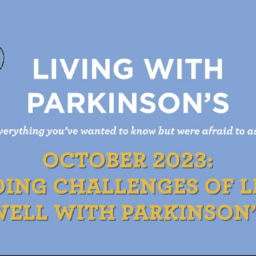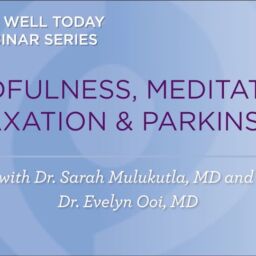Living with Parkinson’s can naturally create stress, but there are also chemical reasons for the anxiety people sometimes experience. Anxiety is one of several non-motor symptoms of Parkinson’s, a diagnosable condition caused by underlying changes in the brain chemistry that affect dopamine and serotonin levels. As cells die in the area of the brain that produces dopamine, anxiety can grow.
What is Anxiety?
It is estimated that nearly half of people with Parkinson’s will experience recurring anxiety at some time. Anxiety is characterized by excessive nervousness and agitation.
Anxiety may trigger:
- Nightmares
- Sleeping problems
- Dizziness
- Heart racing
- Difficulty breathing or sudden waves of terror that may last for a few minutes to an hour. Effects can become so intense that people cannot function normally.
While treatment primarily consists of medication and psychotherapy, healthy nutrition can work in tandem with more traditional treatments to improve mood and reduce anxiety.
How? Proper nutrition impacts the effectiveness of medication. It alleviates symptoms of Parkinson’s by helping your body work more efficiently, giving you more energy. By eating well, you are making conscious choices that will help improve your sense of overall well-being and can counter the symptoms of anxiety.
A Healthy Diet for Curbing Anxiety
Select foods that provide appropriate vitamins and nutrients with the right amount of calories. According to the Northwest Parkinson’s Foundation, you need carbohydrates (45-65% or total calories from whole grains, fruits and vegetables), fats (primarily unsaturated, found in walnuts, flax seeds and salmon, olive oil, nuts and avocado, for example) and the right amount of protein. A diet like the Mediterranean diet meets these requirements.
Include some protein with every meal: fish, eggs, low-fat dairy, lentils, beans, chicken, meat, nuts and seeds. Eat fruit and non-starchy vegetables, especially dark green leafy vegetables, helping yourself to at least seven servings a day. Drink lots of water: eight or more cups daily. While you should avoid those foods toxic to your well-being — sugar, refined carbohydrates and energy drinks — recent research has suggested that caffeine intake may actually protect the brain’s dopaminergic neurons, and thus be beneficial. Enjoy coffee, tea and dark chocolate in moderation. Sensible alcohol intake (once a day or less), particularly red wine as part of a holistic Mediterranean diet, may also be neuroprotective.
Finally, develop simple habits to make good choices easier and more fun. Choose foods that are relatively easy to prepare. Invite friends or family to help out and join you for meals. If mobility is difficult and grocery shopping is a challenge, see if you are eligible to participate in your local Meals on Wheels Program. Rest before eating to gain energy, or alternatively walk before eating to stimulate your appetite. Relax, eat slowly, chew food thoroughly and enjoy your company. Keep healthy snacks on hand.
Eating well will make you feel better and help you live better
Assess your current dietary habits. You can download and complete our nutrition worksheet to help you see how you’re doing and where you can improve. Try setting a few weekly nutritional goals. Take small, simple steps to work toward healthier choices and feeling better.
For in-depth information about nutrition and anxiety, download the free Every Victory Counts® manual.



















We eat well, but we both have difficuty because our senses of smell and taste are poor. My husband hs had a kidney stone, so can’t ave many dark, eafy vegtables. We often have one class of red wine with diner. We do find that hummus and some like dishes make good snacks. I am becoming self concious because I am getting clumbsier, and have trouble cutting meat,, etc…..
Dietlind, it can be difficult to balance additional health issues on-top of Parkinson’s such as a kidney stone. I recommend downloading our Nutrition Worksheet which can help you identify the best foods for you and your husband. Another great resource is Dr. Melanie Brandabur’s recent presentation on nutrition.
If you are experiencing tremor or other difficulties while eating, take a look at products like Liftware and Dining With Dignity that are designed specifically to help people with Parkinson’s. I hope this helps!
On my bulletin board…a quote:
“I always “eat” my pain!”
A quote by the character – Gabriel Dubeau, an over-weight manager of a B&B in the mystery novel
“Still Life” by Louise Penny (p. 72) 2005.
A valuable book — “Always Hungry?” by David Ludwig, MD. 2016. He is a Professor of nutrition at Harvard School of Public Health. Thank you for this blog.
Thank you for sharing your resources, Sue. Eating well is one of the main things you can do to live well today. It’s important to eat fresh, wholesome foods whenever possible and limit processed food within your diet. Speaking with a nutritionist and your doctor are great ways to highlight changes you can make in your diet. Also, we have great resources regarding nutrition, which you can access here.